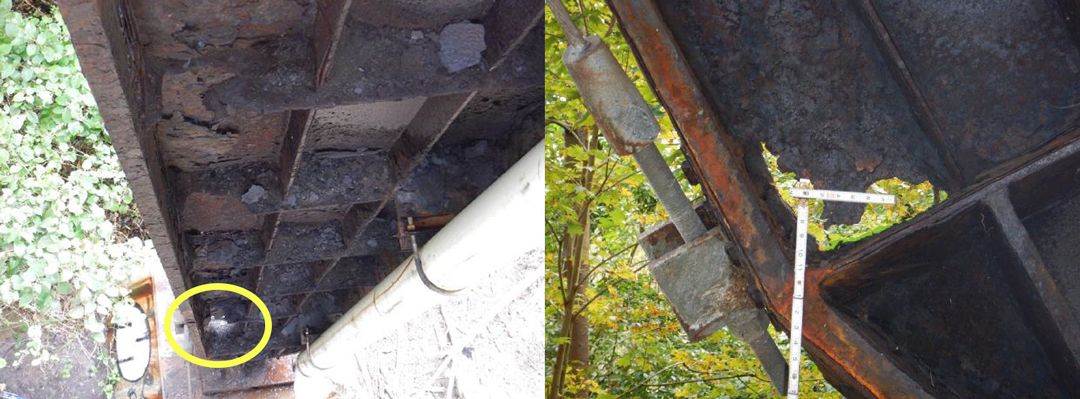Amid concerns about the role corrosion played in the deterioration of the weathered steel on the Fern Hollow Bridge before it collapsed last year, U.S. Sen. Bob Casey will introduce legislation Tuesday to set new standards for bridge maintenance.
Casey, D-Pa., will introduce the Bridge Corrosion Prevention and Repair Act along with Sen. Debbie Stabenow, D-Mich. U.S. Reps. John Garamendi, D-Calif., and Brian Fitzpatrick, R-Pa., will introduce the same bill in the House of Representatives.
The bill will attack bridge corrosion on two fronts — requiring contractors who paint or do other corrosion repair to bridges to meet high training standards and directing the Federal Highway Administration to develop best practices for using weathering steel, the product used to build Fern Hollow. The National Transportation Safety Board, which is investigating why Fern Hollow collapsed in January 2022, recommended owners of all bridges using weathering steel inspect drainage systems to make sure they are working properly to avoid unexpected corrosion.
The NTSB hasn’t yet ruled on what caused the Fern Hollow collapse, but it found significant corrosion related to drainage problems. Weathering steel is uncoated and develops its own protection against corrosion, but that can be counteracted if bad drainage allows the steel to stay wet.
Fern Hollow, which connects Pittsburgh’s Squirrel Hill and Point Breeze neighborhoods on Forbes Avenue, collapsed into Frick Park. Ten people who were in six vehicles on the bridge when it fell were injured.
The legislation, which has been under consideration for more than a year, was developed with input from the Association for Materials Protection and Performance and the International Union of Painters.
“The Fern Hollow Bridge collapse underscored the importance of taking corrosion prevention seriously,” Casey said in a statement. “We need strong federal standards to make sure that we are using properly trained workers and leveraging existing expertise when performing this vital work on our nation’s bridges.”
The bill would require contractors on all bridges that receive federal funds for work to reduce corrosion to employ workers who meet training standards. Bridge owners also would have to develop and implement a comprehensive corrosion control plan for each project.
The bill covers corrosion work on any highway, off-system or locally owned bridges, and rail bridges. Casey’s staff said the Pennsylvania Department of Transportation already meets most of those standards, but many other states do not.
In a fact sheet that was prepared with the bill, Casey and Stabenow said the bill is particularly important considering the billions of dollars in bridge improvement funds included in President Joe Biden’s infrastructure program. An estimated 40,000 bridges across the country are rated in poor condition, including more than 3,000 in Pennsylvania.
“The Bridge Corrosion Prevention and Repair Act will ensure we invest Infrastructure Investment and Jobs Act dollars responsibly — using proven practices and experienced workers who make Pennsylvania’s bridges safer and stronger,” Casey said.
Using an emergency $25.3 million federal grant, PennDOT opened the new Fern Hollow Bridge in late December with two lanes of traffic. It is currently closed until July 7 while Swank Construction crews finish the other two lanes and add a protective coating to the deck.
Ed covers transportation at the Pittsburgh Post-Gazette, but he's currently on strike. Email him at eblazina@unionprogress.com.



